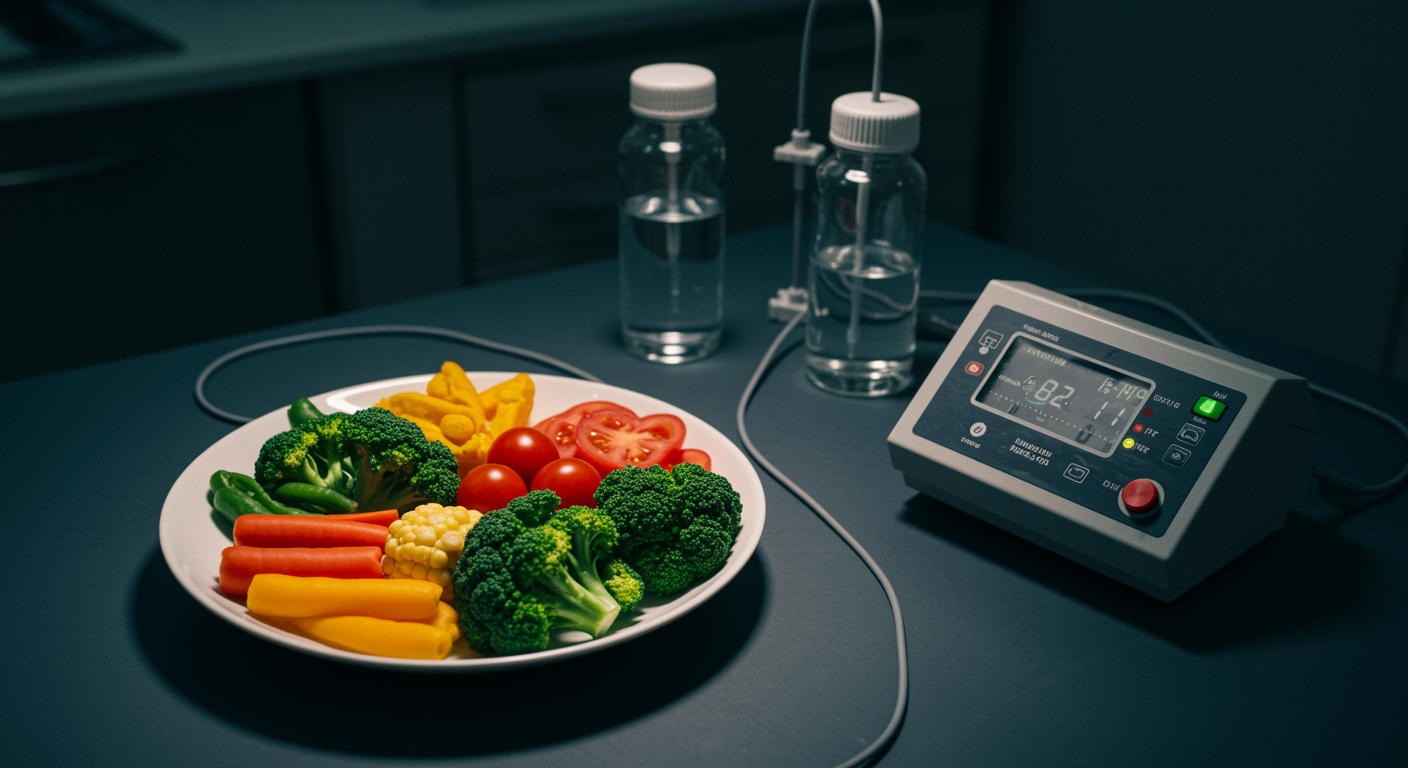Can Changing Your Carbohydrate Intake Reduce GERD Symptoms?
Yes, modifying both the amount and type of dietary carbohydrates can significantly reduce esophageal acid exposure and GERD symptoms. This randomized controlled trial demonstrated that a low-carbohydrate diet reduced acid exposure time by 37% and improved symptom scores by 44% compared to a standard diet over just 4 weeks.
Dr. Kumar’s Take
This RCT provides compelling evidence that diet modification can be as effective as medication for many GERD patients. A 37% reduction in acid exposure is clinically meaningful - that’s similar to what we see with proton pump inhibitors. What’s particularly impressive is the rapid improvement within 4 weeks. This gives patients a concrete, medication-free option that addresses the root cause rather than just suppressing acid production.
Study Snapshot
This randomized controlled trial included 98 GERD patients assigned to either a low-carbohydrate diet (less than 20g daily) or standard diet for 4 weeks. Participants underwent 24-hour pH monitoring before and after the intervention, with primary outcomes including esophageal acid exposure time and validated GERD symptom questionnaires.
Results in Real Numbers
- Acid exposure reduction: 37% decrease in low-carb group vs. 3% in control group
- Symptom improvement: 44% reduction in GERD symptom scores with low-carb diet
- Response rate: 65% of low-carb participants achieved clinically meaningful improvement
- Time to improvement: Significant benefits seen within 2 weeks of dietary change
- Weight loss: Average 3.2 kg reduction in low-carb group (secondary benefit)
- Medication reduction: 40% of low-carb participants reduced or eliminated PPI use
Who Benefits Most
Patients with mild to moderate GERD symptoms showed the greatest improvement with carbohydrate modification. Those with higher baseline carbohydrate intake (>150g daily) experienced more dramatic symptom reduction. Overweight participants gained additional benefits from concurrent weight loss, while patients with severe erosive esophagitis required combined dietary and medical approaches.
Safety, Limits, and Caveats
The study’s 4-week duration limits assessment of long-term sustainability and outcomes. Participants required significant dietary counseling and support, which may not be available in all clinical settings. The low-carbohydrate intervention was quite restrictive (under 20g daily), potentially challenging for long-term adherence.
Some participants experienced initial fatigue and digestive changes during dietary transition. The study excluded patients with diabetes, severe obesity, and other metabolic conditions, limiting generalizability to these populations.
Practical Takeaways
- Consider carbohydrate modification as first-line therapy for mild to moderate GERD
- Focus on reducing refined carbohydrates and simple sugars rather than eliminating all carbs
- Implement dietary changes gradually to improve adherence and reduce side effects
- Combine carbohydrate modification with other proven GERD lifestyle interventions
- Monitor symptoms closely during the first 2-4 weeks to assess response
- Consider working with a registered dietitian for sustainable dietary planning
Related Studies and Research
- A Very Low-Carbohydrate Diet Improves Gastroesophageal Reflux
- Association Between Obesity and GERD: A Review of the Epidemiological Evidence
- Global Prevalence and Risk Factors of Gastroesophageal Reflux Disease
- Clinical Significance of Hiatal Hernia
- Episode 25: The Great GERD Mistake - How Medicine Made Heartburn Worse and How to Fix It
FAQs
How low do carbohydrates need to be to improve GERD symptoms?
This study used less than 20g daily, but other research suggests benefits with moderate reduction to 50-100g daily, making it more sustainable for most people.
Can I try carbohydrate modification while taking GERD medications?
Yes, dietary changes can be safely combined with medications, and many patients find they can reduce medication doses under medical supervision as symptoms improve.
Which types of carbohydrates are most problematic for GERD?
Simple sugars, refined grains, and high-glycemic foods appear most associated with GERD symptoms, while complex carbohydrates from vegetables are generally better tolerated.
How quickly can I expect to see improvement with dietary changes?
This study showed benefits within 2 weeks, with maximum improvement by 4 weeks, though individual responses vary based on baseline diet and symptom severity.
Should I eliminate all carbohydrates for GERD management?
Complete elimination isn’t necessary or recommended long-term - focus on reducing refined carbs and simple sugars while maintaining nutrient-dense complex carbohydrates from vegetables and whole grains.
Bottom Line
Modifying carbohydrate intake represents a powerful, evidence-based intervention for GERD that can reduce acid exposure by over one-third within weeks. This dietary approach offers patients a medication-free option that addresses underlying triggers rather than just suppressing symptoms.


